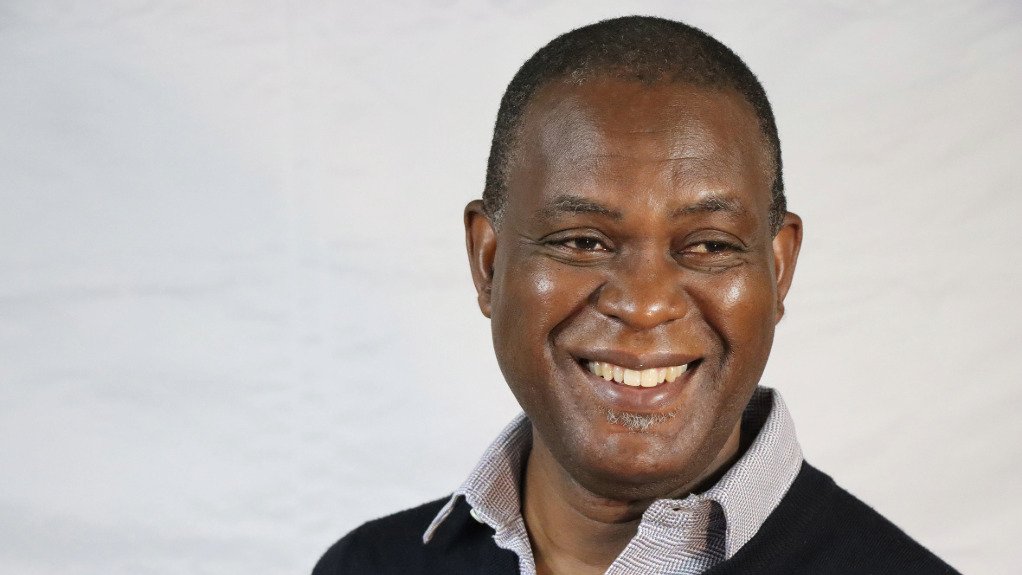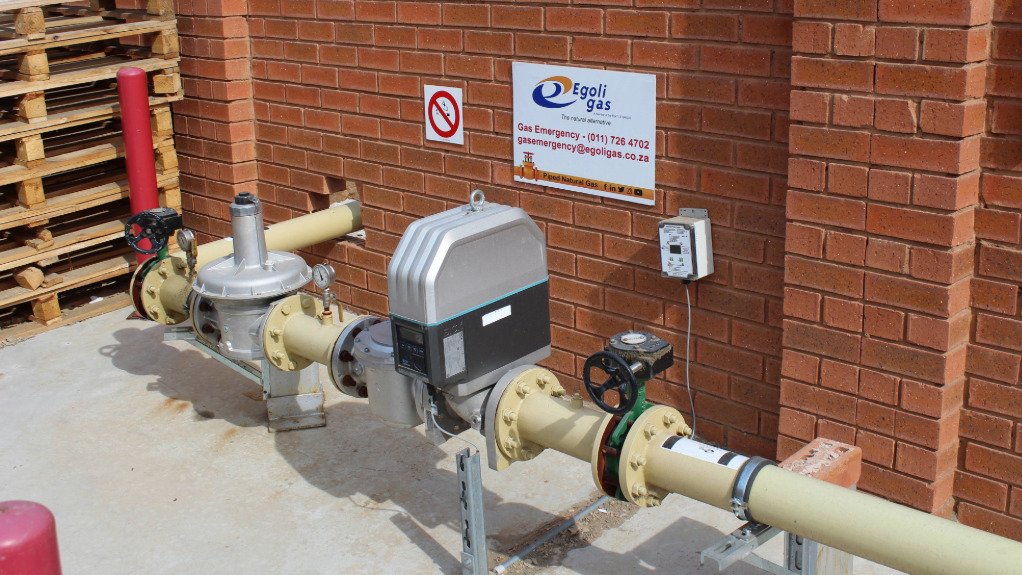Johannesburg gas supplier Egoli Gas aims to develop the capacity to receive liquefied natural gas (LNG) into its pipeline network, with plans to expand access to other major metropolitan areas (metros), positioning Egoli Gas at the forefront of natural gas distribution in South Africa, says recently appointed Egoli Gas MD Mncedisi Mlilo.
“When LNG is introduced into the energy mix in South Africa, we are looking forward to expanding our reticulation infrastructure to other metros and underserviced areas, beyond the greater Johannesburg Metro,” he says.
Expansion areas include Ekurhuleni, Tshwane and eThekwini, which Egoli has identified as strategic priorities, owing to the areas’ proximity to the distribution pipeline.
Since assuming his role in March this year Mlilo has implemented key operational changes to enhance the company’s efficiency. The network has been split into four clusters, ensuring a focused approach by the operational teams.
Recognising the nature and needs of the market in which Egoli operates, the company is also set to launch a prepaid solution for domestic users and select clients in the hospitality industry, reflecting the company’s commitment to innovation and customer-centric services, he explains.
Egoli Gas is also in the early stages of preparations to pilot fibre-based technology to monitor its pipeline network, demonstrating its commitment to keeping abreast of technological trends and adopting technologies that will benefit its clients.
Bridging Fuel
Egoli Gas aligns itself with the goals of South Africa’s 2030 National Development Plan, particularly the transition to a low-carbon economy.
In navigating South Africa’s evolving energy landscape, the company aims to position itself as a “bridging fuel” provider, supporting the integration of renewables and easing the energy supply burden on Eskom and metro power providers.
“We see the penetration of gas cooking, gas geysers and gas-based space heating as key in enabling a stable and expanded grid,” says Mlilo.
This strategic positioning should enable the company to establish itself as the partner of choice in the transition towards a less greenhouse-gas- intensive energy sector. By embracing this role, Egoli Gas seeks to contribute significantly to South Africa’s energy transition.
Mlilo says the company’s long-term goal is to facilitate South Africa’s industrialisation by ensuring a reliable energy supply; it aims to be a trusted partner in industry, providing dependable and sustainable energy sources for process heating and other industrial needs.
Proactive Measures
Amid an evolving energy landscape, Egoli is navigating various industrywide challenges pertaining to gas supply, infrastructure development, regulatory hurdles and market competition.
A key challenge impacting on South Africa’s gas industry is the imbalance between gas demand and supply.
While the demand for gas exceeds the current supply, Mlilo says this is seen as an opportunity rather than a setback: “This is a good problem to have if you have viable solutions to address it. We believe we do.”
He acknowledges the impending decline in production from the Pande-Temane gasfields, operated by energy company Sasol, in Mozambique, but remains optimistic about the potential of LNG supply currently in development.
To proactively address infrastructure challenges, Egoli has made progress in systematically replacing carbon steel with high-density polyethylene in its network, which the company deems a long-term project, owing to the vast length of its network.
To navigate regulatory hurdles, it has established a stakeholder relations and regulatory affairs function to foster a collaborative relationship with regulatory authorities.
Mlilo adds that Egoli has and will continue to engage proactively with the authorities on regulatory matters affecting the industry.
Egoli also sees opportunities for “coopetition” by collaborating with competitors to find mutual solutions to address the current supply shortfall. The company intends to leverage its extensive reticulation network to build strong market relationships and capitalise on its strategic advantages.
While acknowledging that global market fluctuations pose challenges, Egoli Gas remains committed to transparent communication with its market to ensure that it remains cognisant of future changes in the current pricing regime of gas, he adds.
As LNG is introduced into the South African energy landscape, the current pricing regime will change, likely leading to more fluctuations and higher prices. However, the company is prepared to manage these changes and ensure that clients are well informed, Mlilo concludes.
Edited by: Nadine James
Features Deputy Editor
EMAIL THIS ARTICLE SAVE THIS ARTICLE
ARTICLE ENQUIRY
To subscribe email subscriptions@creamermedia.co.za or click here
To advertise email advertising@creamermedia.co.za or click here















